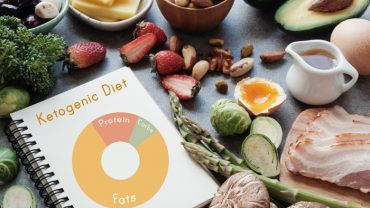How to Get Pregnant Fast: 24 Natural Ways to Boost Fertility
Pregnancy is no easy process.
Nine months of frequent vomiting, fatigue, weight gain, and tender breasts are not things many women hope for.
However, we go through it with the hopes of a healthy and beautiful newborn at the end.
So, what are some ways to ensure you’re getting the best out of these tiring nine months?
How can you boost your fertility and fetal health naturally?
Here are some great tips and guidelines:
Eat Foods Rich in Antioxidants
Antioxidants, believe or not, are keys to boosting fertility – for both men and women. Why?
Antioxidants are compounds found in foods or produced by your body to protect tissue from damage.
Moreover, they protect cells from free radicals-unstable molecules that can damage a cell’s structure.
Antioxidant supplements or foods rich in antioxidants will provide you with healthy cells, and healthy cells mean greater fertility and fetal health.
Which antioxidants to take:
Vitamin C: vitamin C is found mainly in fruit and vegetables.
Red peppers, cranberries, citrus fruit, broccoli, and cabbage are great options.
Vitamin E: a study has shown Vitamin E prevents miscarriages in mice.
Foods like cereals, rice bran and oatmeal are high in Vitamin E.
Lipoic Acid: these boost glutathione, which gets rid of toxins and excess hormones in your liver.
You’ll find them in spinach, potatoes, and red meat.
Start Eating for Two
You’re not just eating for yourself, now – you’re eating for your baby.
That means you’ll have to watch the types of food you’re eating.
Are you eating healthily? Are you eating too much or too little?
Eat a rainbow of fruit and vegetables at every meal.
In addition, eat lots of protein – but not just any protein, preferably, eat protein from vegetable – rather than an animal – sources.
Plant protein, such as chia seeds, lentils, and nutritional yeast, is what you should be putting in your body (and your baby’s).
Choose Good Fat
Luckily, hearing the word ‘fat’ when it is in your food is no longer considered bad news.
In fact, the type of fat you should be eating is unsaturated fat – which comes in the form of polyunsaturated and monounsaturated fat.
The type of fat you should NOT be eating is trans fat.
In fact, eating trans fat instead of carbs may increase your infertility risk by up to 73% (1).
- Polyunsaturated Fats
Polyunsaturated fats are rich in omega-3 fatty acids, which will help your baby develop and maintain its heart, immune system, brain, and other functions.
Where to find them: salmon, trout, flaxseed, walnuts, and soybean or corn oil.
- Monounsaturated Fats
Monounsaturated fats are a good source of folate or folic acid, which helps protect your baby against birth defects.
Where to find them: mixed nuts, almonds, avocado, and vegetable or sunflower oil.
Aim to have 4 servings of unsaturated fats per day, or make it 25% of your daily calorie intake.
- Saturated Fats
Saturated fats are found in meat, milk and dairy products.
Your daily intake of saturated fats shouldn’t be as much as unsaturated fats.
Put a limit on how much-saturated fat you’re eating.
Aim for it to be 6% of your daily calorie intake.
- Trans Fat
Trans fat is found anywhere from packaged foods to frozen items – and in the gut of your stomach.
You should avoid trans fat as much as possible.
In fact, one study (2) found the amount of trans fat a mother ate increased the fetal growth of her baby.
Where to find them: cookies, fried foods, margarine, frosting, etc.
Eat the Right Amount of Carbs
Cutting down on carbs is an essential part of improving fertility and fetal development, but this does not mean you should have a low-carb diet.
In fact, a low-carb diet can put your baby at serious risk – and you need the carbs, too.
Severely reducing your intake of carbohydrates will cause your body to burn fat for energy, therefore posing a risk to your baby.
Many carbohydrates provide glucose, fiber, and folic acid, which is beneficial to fertility.
Although cutting down on carbs is good for fat loss and maintaining a healthy weight, pregnancy is a time when you’ll need these carbs.
Eat the Right Types of Carbs
So, what are the right carbs to eat and how much, exactly, should you consume?
The Good Carbs: fruit, vegetables, legumes (beans), and whole grains like bread, pasta, and rice.
The Carbs to Avoid: refined carbs. Refined carbs are found in sugary foods and drinks, and processed grains such as many kinds of pasta, white bread, and rice.
The problem with these types of carbs is that they have a high glycemic index, meaning they negatively impact on your blood glucose (or blood sugar) levels.
Studies have found that foods with a high glycemic index can lead to increased ovulatory infertility (3).
Eat More Fiber
Eating more fiber helps your body get rid of excess hormones and keep your blood sugar levels stable.
You should get 25 grams of dietary fiber per day.
Examples of meals or snacks with plenty of fiber include oatmeal with fruit (for example, blueberries), dried or unsalted nuts, whole grain pasta, beans, fruit, and vegetables.
Fiber can also help remove excess estrogen, which is found at especially high levels during puberty and pregnancy.
In addition, fiber can decrease constipation and lower blood pressure.
Pick the Right Protein
Consuming protein is an important part of boosting fertility.
You can find protein in poultry, eggs, fish, and beans.
But, don’t just eat any protein – in fact, switching from animal protein to vegetable protein can reduce the risk of infertility (4).
Vegetable protein can be found in beans, nuts, and seeds.
You don’t have to eliminate the protein you get from animal sources from your diet, but you should consider opting for vegetable protein most of the time.
This can boost fertility levels.
Try Multivitamins
Multivitamins are a great way to get all your nutrients, especially if your daily meals aren’t ensuring you’re getting enough.
However, multivitamins shouldn’t be considered replacements for a healthy meal; they should be supplements, as in an additional way to gain nutrients.
Moreover, ensure that you only take vitamin supplements recommended by your doctor or given to you by your health care provider.
Dietary supplements such as Vitamin E, Vitamin B6, chaste berry, and green tea are great options during your pregnancy.
A study has actually shown that 20% of ovulatory infertility can be avoided by consuming three or more vitamins per week (5).
Swap Low-Fat for High-Fat Dairy
Dairy is a great source of calcium, vitamin D, protein, and phosphorus.
It’s important because it will help your baby’s bones, teeth, muscles, and many other essential parts grow.
Aim for 3 to 4 servings a day. You might be the type that regularly consumes skim or fat-free milk.
Consider swapping this for a glass of whole milk.
Studies have shown that high-fat dairy can actually improve fertility.
However, many studies have different findings.
The universal advice is to consume low-fat dairies, like low-fat cheese, milk, and yogurt.
If you continue drinking a glass of fat-free milk like normal, it won’t kill your baby.
But, consider your options – high-fat dairy has actually been proven to help with pregnancy.
Exercise
Exercising will always be lauded as a daily activity you do to maintain a healthy lifestyle.
While you know it benefits your general health, it also improves fertility.
Studies have revealed that a sedentary lifestyle can increase the risk of infertility (6).
While you’re exercising, be sure to not go overboard.
In fact, frequent high-intensity or excessive exercising can negatively affect the baby.
It can alter your energy balance and negatively impact your reproductive system.
Here are a few sample moderate activities you should do:
Aerobic Activity – makes your heart and lungs work faster. Brisk walking, jogging, swimming or dancing.
Muscle Strengthening – climbing stairs, weight training, yoga.
Avoid Anaerobic Activity – anaerobic activity is defined as short duration, high-intensity exercise.
This includes sprinting and jumping.
As mentioned before, you want to avoid high-intensity exercise – this can pose a risk to your fertility.
Relax
The hormonal change during pregnancy can definitely bring on a lot of stress.
In addition, working long hours or having a stressful job can increase the time it takes you to get pregnant.
If you have depression, or high anxiety or stress levels, receive some counseling or therapy.
You’re not alone – the NCBI states that 30% of women that visit fertility clinics suffer from depression or anxiety (7).
Managing your stress levels will increase your chances of becoming pregnant, while high levels of stress can pose a risk to conception.
Reduce Caffeine Intake
OK, so there are mixed results on whether your daily cup of joe can affect fertility.
Many studies show it reduces fertility, while others display no strong link between caffeine and infertility.
However, you may want to cut back on the caffeine – it could pose a risk.
A study has shown that high caffeine intake can also be linked to an increased risk of miscarriage (8).
Obtain and Maintain a Healthy Weight
Being underweight or overweight can negatively affect your pregnancy.
A study conducted by the NCBI showed 12% of ovulatory infertility is due to being underweight, while 25% is due to being overweight (9).
Women who are underweight should gain 28 to 40 pounds.
Being underweight can increase the risk of preterm birth or an abnormally small baby.
You are overweight if your BMI is 25 to 29, and you are obese if your BMI is 30 or higher.
Complications from being overweight include gestational diabetes (too much glucose in your bloodstream), miscarriage, and blood clots.
Being underweight and overweight can both result in premature birth or birth defects.
Make Him Maintain a Healthy Weight
This process is a two-way street.
Encourage your partner to aim for a healthy weight.
Men who are overweight or obese are more likely to have low sperm counts (11).
Increase Iron Intake
Your body uses the iron to make hemoglobin, an important component of extra blood, for your baby.
This means you’re going to want to eat plenty of iron-rich foods.
You should consume 18mg on a daily basis.
Here are a few examples of iron-rich foods:
- Dark, leafy greens (spinach, kale, collard greens)
- Dried fruit (apricots, prunes, raisins)
- Beans
- Eggs
- Fortified cereals and grains
In addition, according to the WebMD, getting enough iron can prevent you from having iron deficiency anemia – or a condition where you have too few red blood cells, leaving you fatigued.
Iron also helps the oxygen from your lungs travel to the rest of your body – and to your baby, as well.
Avoid Alcohol
Alcohol in the mother’s bloodstream will pass through the umbilical cord to the baby.
In other words, if you drink, your baby drinks. Is there a limit to alcohol you should drink?
Yes. Avoid it completely.
There’s no safe amount to drink, nor is there a safe type of alcohol to drink.
Whether it’s wine or beer, a cup or 10 glasses, don’t do it.
In fact, one study has shown that consuming eight or more servings of alcohol per week was linked with increased time to get pregnant (12).
Although studies have resulted in mix conclusions, it’s safer to avoid all consumption of alcoholic beverages.
Drinking alcohol can increase the time it takes you to get pregnant as well as increase infertility.
Some issues related to alcohol consumption during pregnancy:
- Miscarriage and stillbirth
- A range of disabilities – whether physical, behavioral or intellectual
- Abnormal physical features
- Problems with the heart, kidney, bones and more
Avoid Unfermented Soy
Studies have suggested unfermented soy can interfere with hormone levels and cause infertility issues.
And, in general, unfermented soy is not a healthy option for everyday meals.
Why? According to Dr. Mercola:
- It’s largely genetically modified.
- It can result in blood clots.
- It contains high levels of toxins or antinutrients, which can lead to gastric distress.
A study on the consumption of unfermented soy in rats resulted in lower sperm quality in male rats and reduced fertility in female rats.
Take Natural Supplements
Natural supplements are a proven way to boost your fertility.
But, as with multivitamins, make sure you’re only taking what’s recommended or provided to by your doctor or other health care provider.
Here are some great natural supplements to take during pregnancy:
- Maca: a plant grown in Peru that has been linked with increased fertility.
- Bee Pollen: has been linked to improving immunity and fertility. A study also linked it to the improvement of male sperm quality and male fertility.
- Royal Jelly: another supplement from bees that can benefit fertility. It is packed with amino acids, lipids, sugars, vitamins, iron, fatty acids, and calcium, and it has been proven to improve reproductive health in rats.
- Fish Oil: The omega 3s in fish oil is helpful for the baby’s development and brain growth. It also protects against premature birth and supports the mother’s cardiovascular health.
- Probiotics: natural supplements that boost the immune system and fight constipation during pregnancy.
- Glutathione: antioxidant that plays a key role in the growth of the fetus and supporting both the baby’s and the mother’s immune systems.
Massage
Get a fertility massage.
Getting a massage not only feels good and relieves stress, but it can also boost fertility.
Here are a few ways that it does so:
- Increases circulation to the uterus, ovaries, and eggs
- Supports the body in clearing scar tissue
- Helps bring oxygenated blood to the reproductive system
If it is within your budget, find a great massage therapist that specializes in fertility and uterine massage.
However, do not get a fertility massage if you’re pregnant or menstruating.
Try Juices and Smoothies
Juices and smoothies may help people get plenty of nutrition they can’t get from solid foods.
Sometimes, three meals a day won’t provide the adequate nutrition you need on a daily basis.
Moreover, consuming juices and smoothies can help reduce cravings, shrink your meal sizes (if you need to cut back), and help make you healthier.
Besides, they are delicious and packed with plenty of antioxidants, vitamins, and minerals.
Steer Clear of Pesticides
The chemicals used to kill insects and weeds can kill your baby too.
Okay, well maybe not kill it but if you’re pregnant or planning to be, it’s best to avoid exposure to pesticides.
Studies have shown it can decrease male fertility and negatively affect female fertility.
It inhibits ovarian function and can disrupt your menstrual cycle.
In addition, not only can general exposure to harm fertility but eating fruit and vegetables treated with pesticides can also.
In fact, a study revealed a link between pesticide exposure and a decrease in sperm count.
So, what can you do about it?
Avoid applying pesticides to your lawn or garden, at least while you are pregnant or trying to conceive.
Also, swap our non-organic fruit and vegetables for organic.
Avoid Smoking
Need another reason to quit smoking? Your fertility.
The toxins from cigarette smoking can cause damage to a woman’s eggs, and interfere with the implantation process.
In addition, it can cause ovaries to age.
In other words, a 30-year-old smoker may as well have ovaries that belong to a 40-year-old woman – therefore the 30-year-old woman is less fertile.
Smoking may not exactly kill your baby or permanently damage your reproductive functions, but it definitely can result in infertility.
That being said, it’s best for a mother to cut back on the cigarettes if she wants a healthy baby.
Sex
We all know how to make a baby.
But, here are a few tips to ensure your lovemaking results in conception.
Having sex on a regular basis can improve sperm quality and count.
Conversely, abstaining from sex a week or even just five days can decrease male fertility and/or sperm count.
Although regular or daily intercourse may increase your chance of pregnancy, it may stress out other couples.
Find out what pattern is best for you.
Lubricants
Lubricants are popular for use during sex, but make sure you’re not using just any lubricant.
Be wise about your options. Some lubricants can actually decrease fertility.
Avoid water-based lubricants or lubricants that have spermicidal agents.
Water, Lemon and Green Tea
Another important key to improving fertility is to stay hydrated.
Not only is it good for your overall health, but it helps with the conception you hope to have in your future.
A cervix produces cervical mucus, similar to other mucus in our body.
If you’re not hydrated or constantly drinking water, your mouth will get dry.
Therefore, you can expect that your mucus elsewhere in your body will get dry.
Staying hydrated will improve the quantity and quality of cervical mucus, which can improve fertility.
Adding half a lemon to a glass of water daily can also improve fertility.
Lemons are packed with vitamin C and plenty of antioxidants.
This will help flush toxins out of your system.
Green tea is also a great way to prevent fertility.
Although it’s a slightly caffeinated tea, don’t count it out.
It may help you conceive faster.
It has plenty of antioxidants, and studies have recently found green tea to improve fertility in women.
However, many studies have also found that the caffeine in green tea can be linked to miscarriage.
The important thing is to consume it in moderation – or, if you wish to be on the safe side, you can stick with your other hydration options.
Conclusion
So, in this article, you’ve discovered many ways to improve fertility and fetal health.
Perhaps you’ll go conceive easily.
Regardless of the fact that only half of these ways may work for you, you have options.
You have plenty of ways to make sure you’re able to conceive a healthy newborn baby as soon as possible.
Maybe you’re not too keen on supplements, or it’s hard for you to quit smoking or drinking caffeine.
But, the most important thing is to try – try new things.
Do your best to discover what works for you.
After all, this isn’t just about you, anymore – it’s about a baby, too!
FDA Compliance
The information on this website has not been evaluated by the Food & Drug Administration or any other medical body. We do not aim to diagnose, treat, cure or prevent any illness or disease. Information is shared for educational purposes only. You must consult your doctor before acting on any content on this website, especially if you are pregnant, nursing, taking medication, or have a medical condition.
HOW WOULD YOU RATE THIS ARTICLE?







I have thought there is too much sugar in juices…Is it true?
Should my husband also change his eating habits?
Very useful article! I enjoyed reading, thanks!
Pls am always having sex with my spouse for a month nw buh am still seeing my period wt can i do pls i need help! Tanq u
Great article. There are simple ways to maximize your chances of getting pregnant. The first thing is to find out your most fertile days. Alcohol drinking and smoking can affect your fertility and it also increases the pregnancy risks. Take folic acid supplements which are essential for fetal development. Diet is not only important for your health but it also impacts on fertility. Make sure you include certain healthy fertility friendly foods such as leafy vegetables, fruits, beans, nuts in your diet.